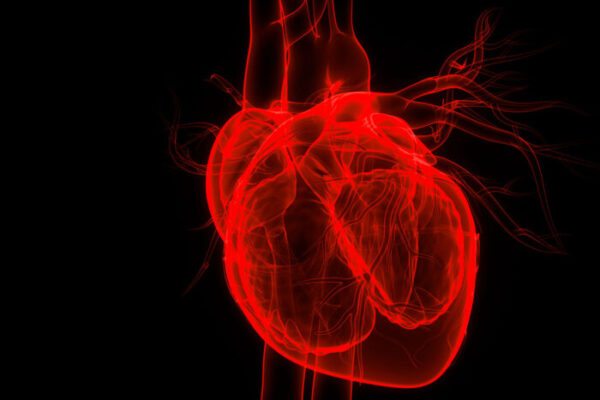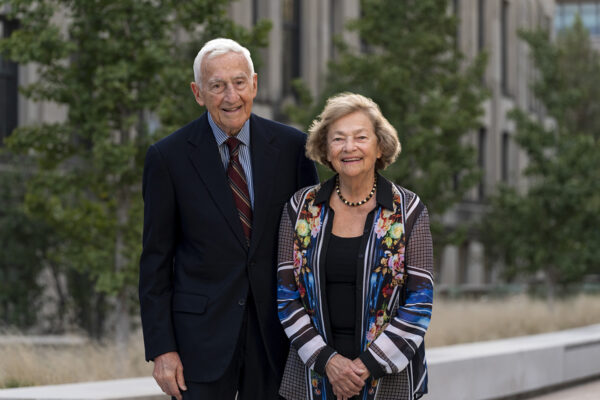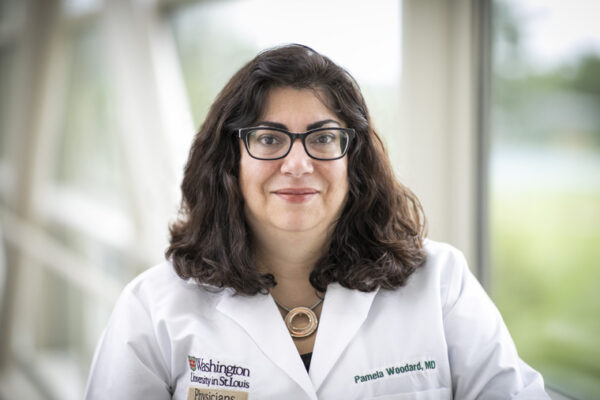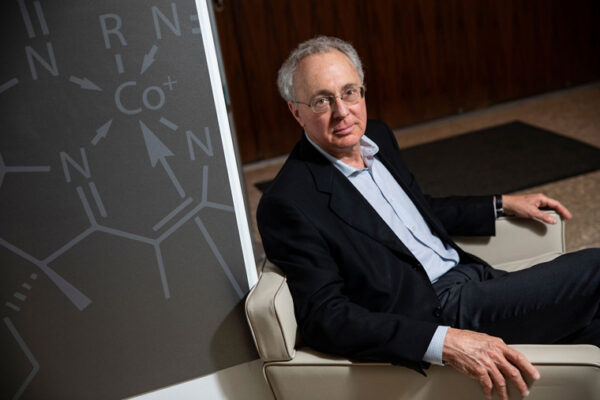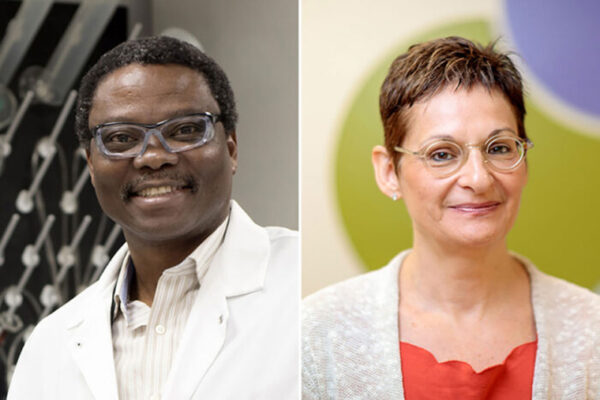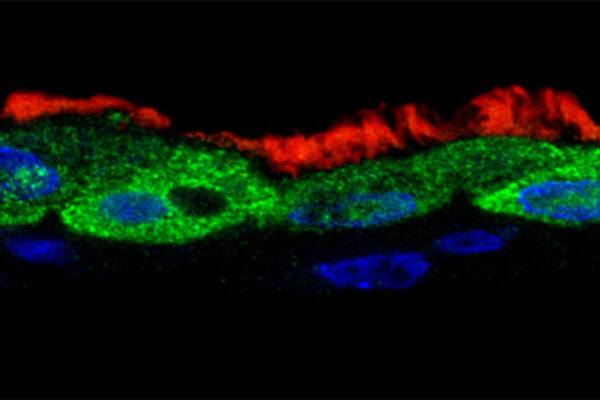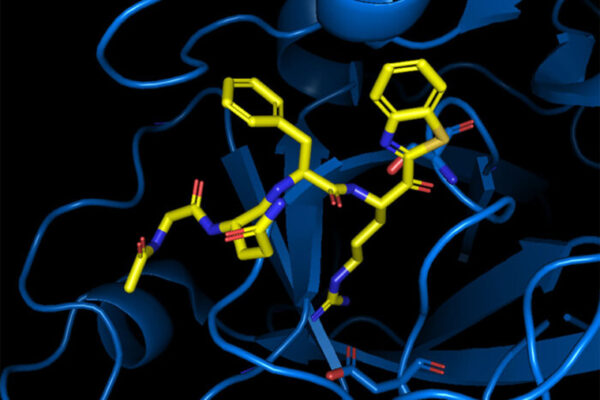Popular heart failure drug no better than older drug in sickest patients
A new study led by researchers at Washington University School of Medicine suggests that a widely used heart failure drug named sacubitril/valsartan is no better than valsartan alone in patients with severe heart failure.
$15 million gift to strengthen life science education, research across university
P. Roy Vagelos, MD, and his wife, Diana Vagelos, are providing $15 million to support the university’s Division of Biology & Biomedical Sciences. The gift will fund undergraduate and graduate work in the life sciences. The couple made the gift to honor former Chancellor William H. Danforth, MD, who died last year.
Hookworms have potential to protect soldiers from chemical, biological weapons
Researchers at Washington University School of Medicine have received a grant to develop the next generation of personal protective equipment for combat troops, harnessing the genetics of hookworms.
Woodard named outstanding researcher by radiology society
Pamela K. Woodard, MD, the Hugh Monroe Wilson Professor of Radiology at Washington University School of Medicine, has been named the 2021 Outstanding Researcher by the Radiological Society of North America.
Merck Foundation to fund professorships for early-career physician-scientists
Merck Foundation has made a $2 million commitment to Washington University School of Medicine in St. Louis to establish two endowed assistant professorships supporting early-career physician-scientists from populations that are historically underrepresented in medicine and biomedical sciences.
Achilefu, Luby elected to National Academy of Medicine
Medical imaging scientist Samuel Achilefu and child psychiatrist Joan L. Luby, MD, both of Washington University School of Medicine, have been elected to the National Academy of Medicine, one of the highest honors in health and medicine.
Common respiratory virus manipulates immune genes to protect itself
Researchers at Washington University School of Medicine have figured out how respiratory syncytial virus (RSV) undermines the body’s defenses, a step toward understanding why the virus is capable of causing serious illness in vulnerable populations.
Antiviral compound blocks SARS-CoV-2 from entering cells
School of Medicine scientists have developed a compound that prevents SARS-CoV-2 and related coronaviruses from entering cells. The researchers are collaborating with the NIH to test the compound in animal models of COVID-19.
Framework for evaluating AI-based medical imaging method outlined
As artificial intelligence becomes more incorporated into the medical field, rigorous evaluation of these methods is needed before they are introduced into clinical practice, a team led by Washington University researchers Abhinav Jha and Barry Siegel, MD, proposed.
Alston receives NIH fellow transition award
Jhullian Jamille Alston, a predoctoral trainee in biochemistry and molecular biophysics and in the laboratories of Alex Holehouse and Andrea Soranno at the School of Medicine, received a predoctoral-to-postdoctoral fellow transition award from the National Cancer Institute of the National Institutes of Health (NIH).
Older Stories
